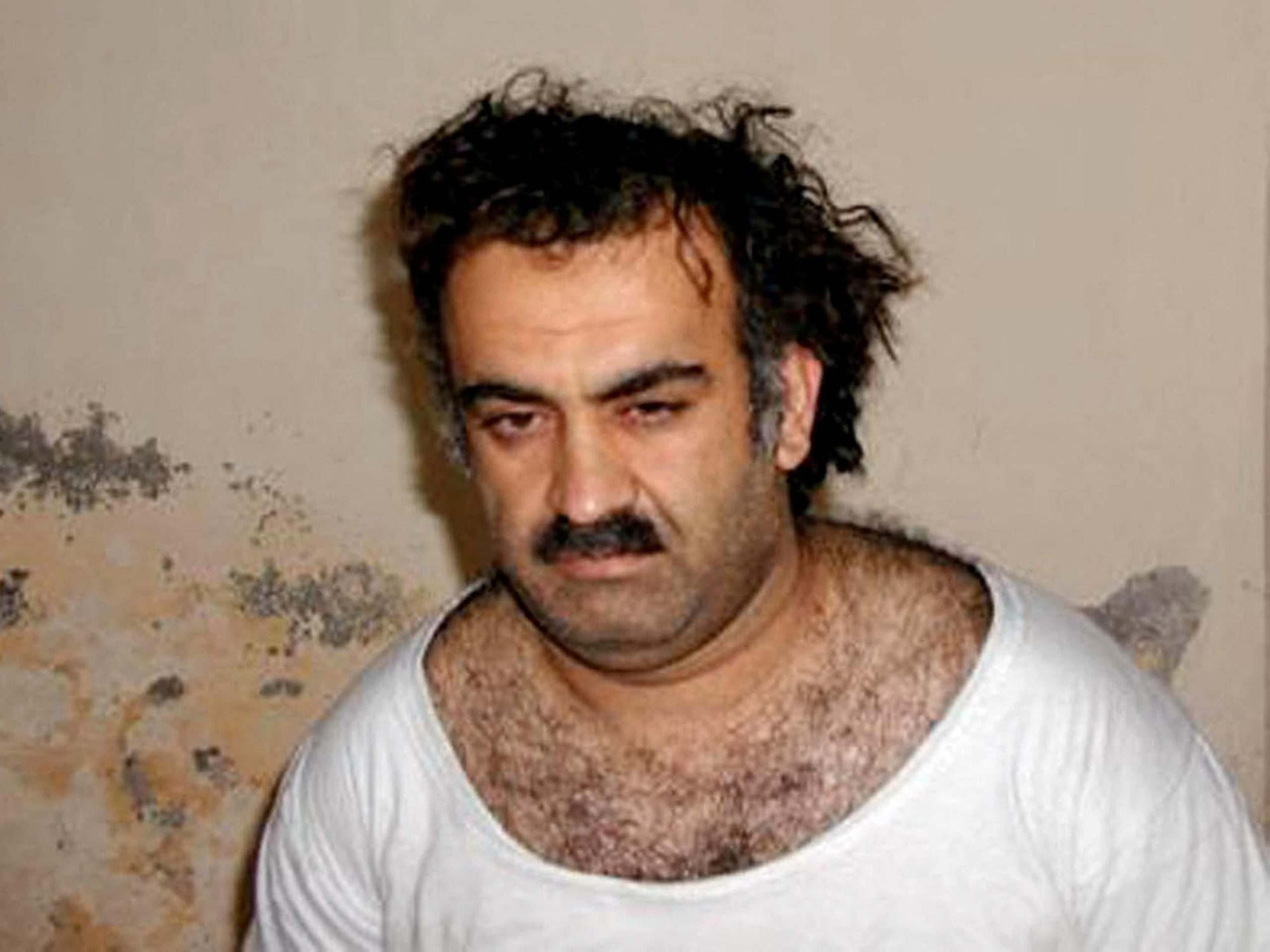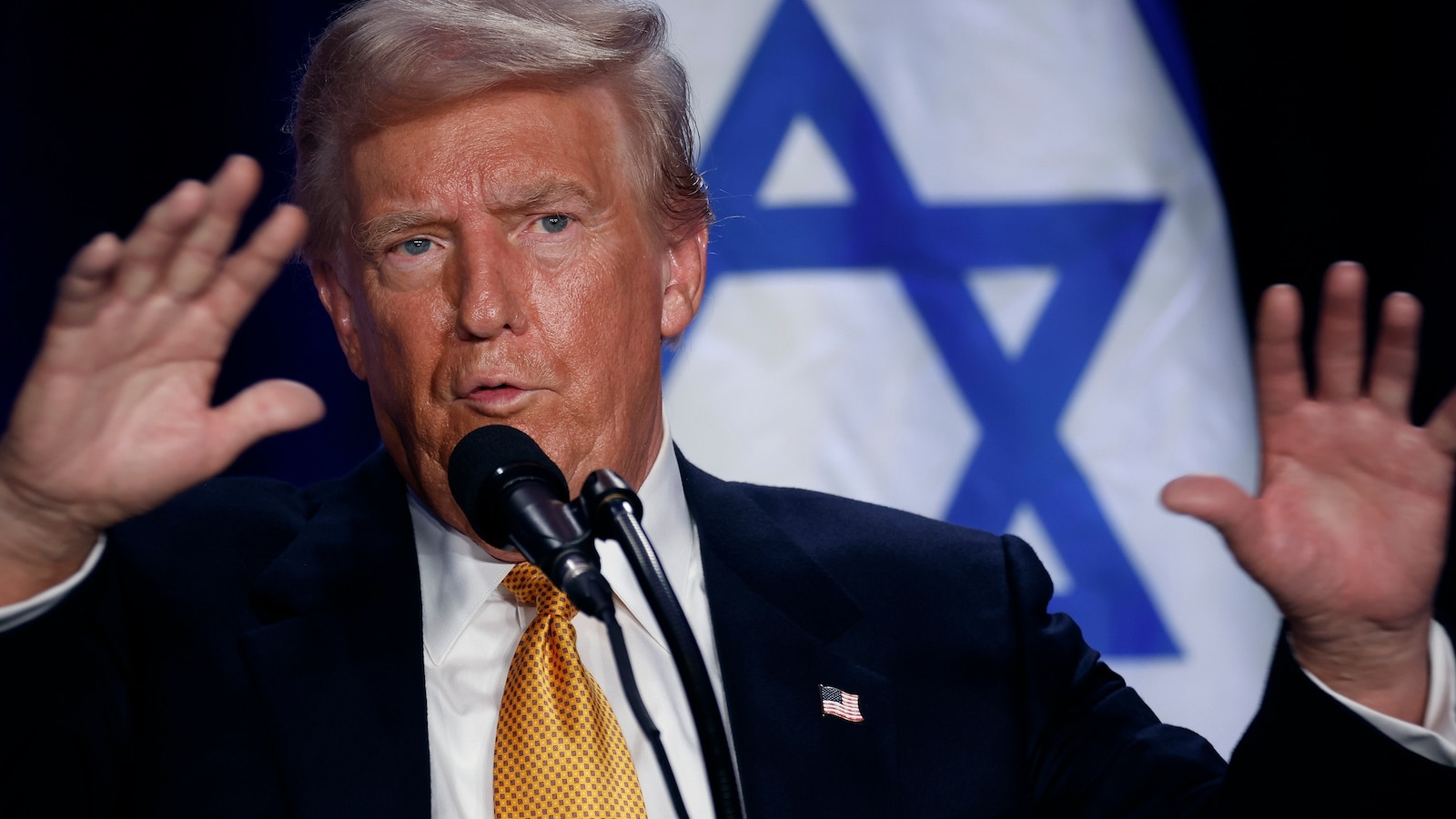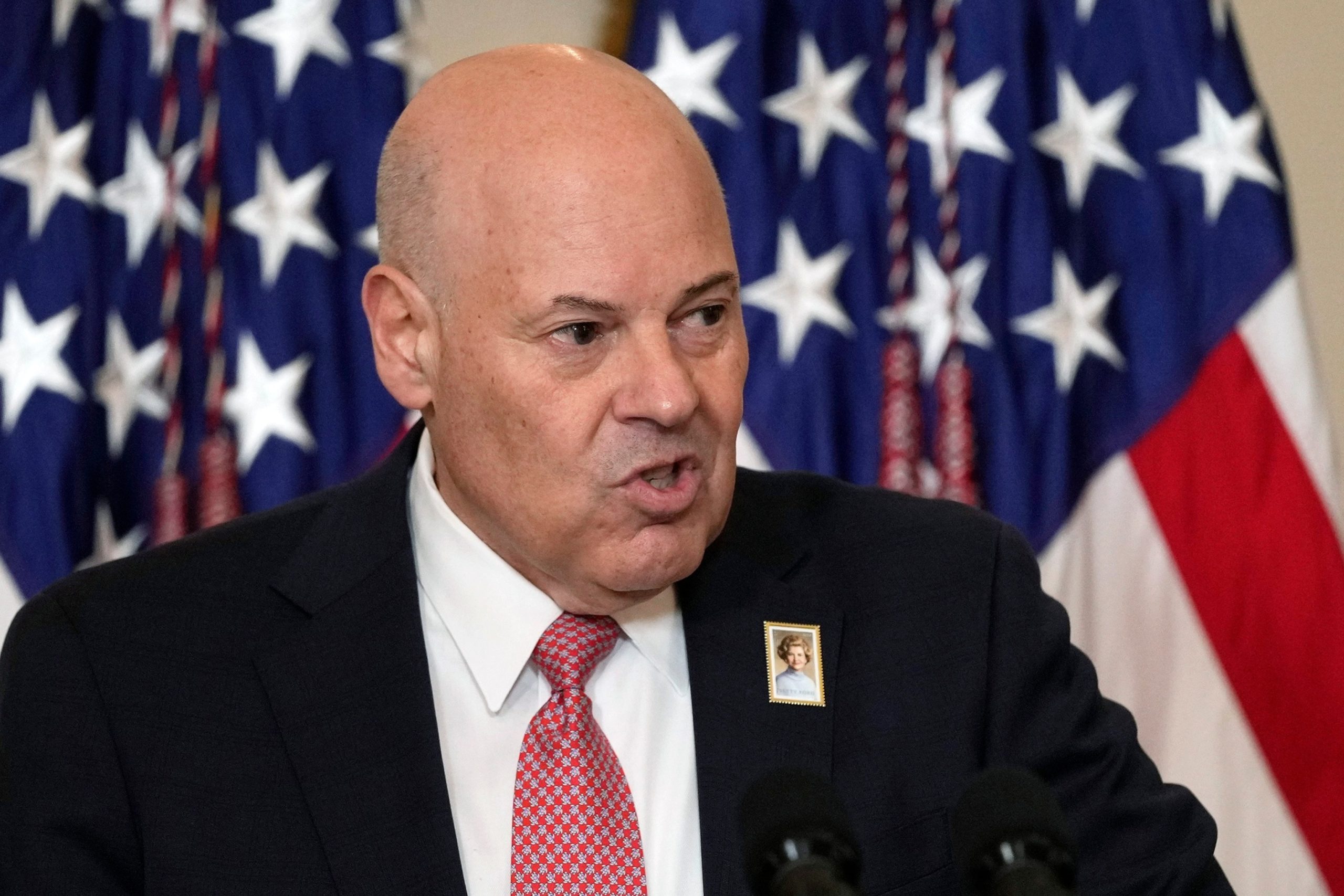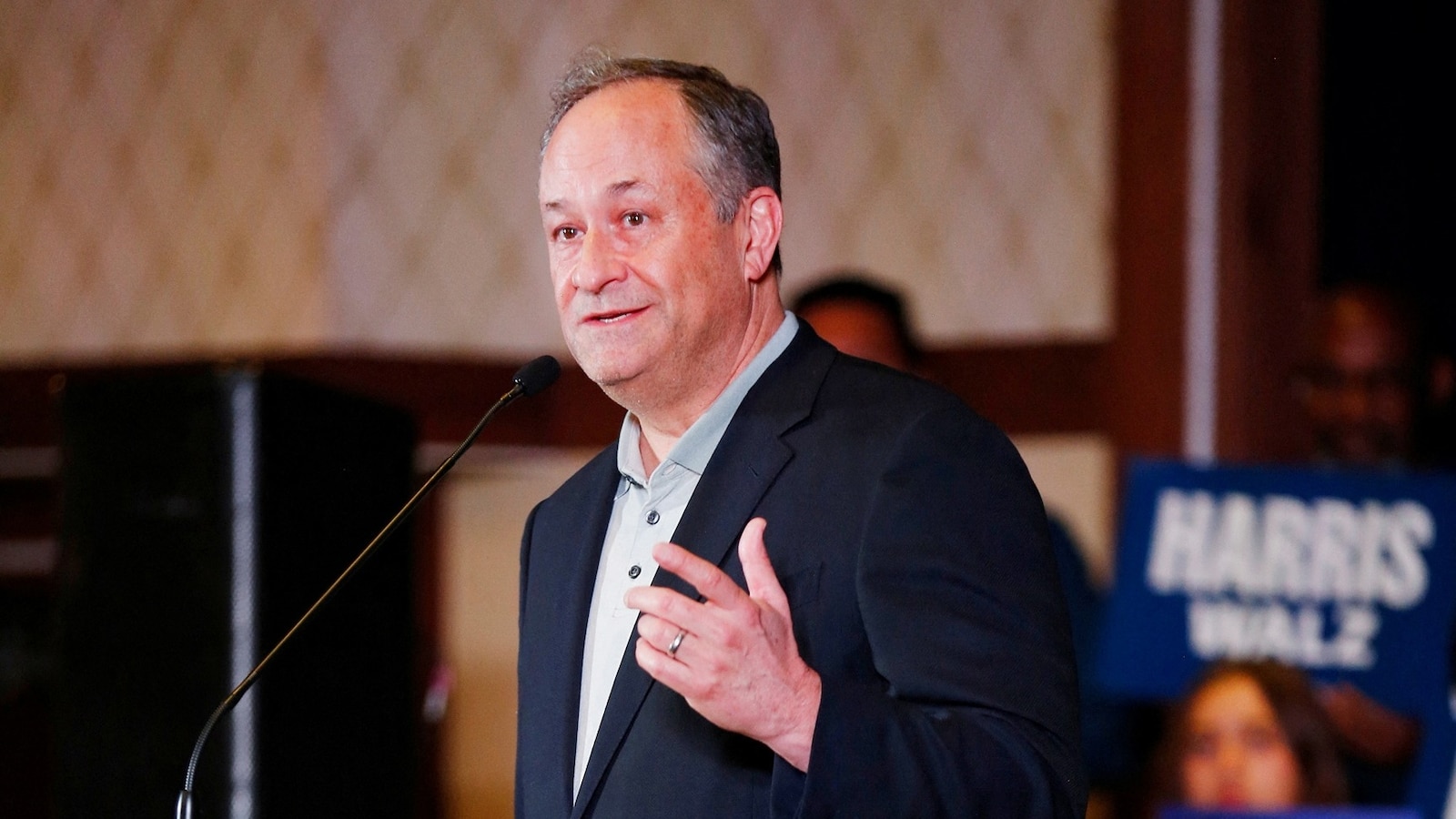Three of the five 9/11 defendants at Guantanamo Bay — including alleged mastermind Khalid Shaikh Mohammad — have reached a plea agreement with prosecutors, the Pentagon announced Wednesday.
The trial of the five 9/11 conspirators had been stuck in legal delays for a very long time. No details about the specific terms and conditions of the pre-trial agreement have been made public. The other two conspirators who have agreed to the agreement aside from Mohammad are Walid Muhammad Salih Mubarak Bin Attash and Mustafa Ahmed Adam al Hawsawi.
Last September, ABC News reported that President Biden rejected a set of demands to form a basis for plea negotiations offered by the five defendants.
Biden agreed with U.S. Secretary of Defense Lloyd Austin’s recommendation not to accept their demands, known as “joint policy principles,” that they wanted prior to entering into plea agreement talks with prosecutors. According to the New York Times, those demands included avoiding solitary confinement and receiving health treatment for injuries the detainees claim were a result of CIA interrogation methods when they were in the CIA’s “black prisons.”
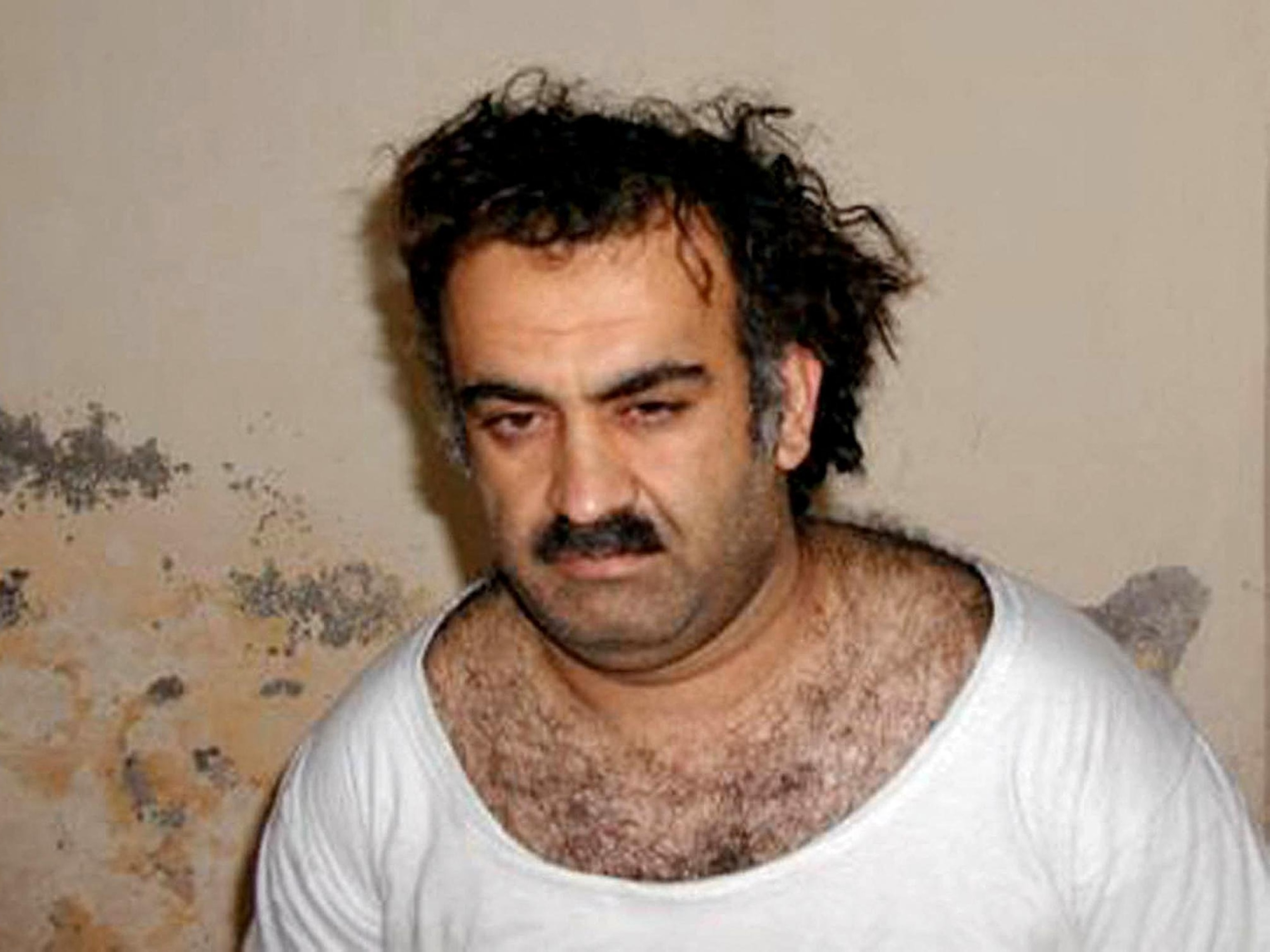
Khalid Sheikh Mohammed, alleged organizer of the September 11 attacks, shortly after his capture, March 1, 2003.
AFP via Getty Images
“The 9/11 attacks were the single worst assault on the United States since Pearl Harbor,” a National Security Council spokesperson told ABC News in a statement in September 2023. “The President does not believe that accepting the joint policy principles as a basis for a pre-trial agreement would be appropriate in these circumstances. The Administration is committed to ensuring that the military commissions process is fair and delivers justice to the victims, survivors, families, and those accused of crimes.”
The five detainees, including the alleged mastermind behind the attacks, Khalid Shaikh Mohammed, were transferred to the U.S. detention center in Guantanamo Bay, Cuba, in 2006. Their case has been held up by legal proceedings for years, with no trial date set.
On the morning of Sept. 11, 2001, two hijacked passenger jets flew into the Twin Towers of the World Trade Center in New York City, marking the start of a series of coordinated attacks that day against the United States by the Afghanistan-based terrorist group al-Qaida. Nearly 3,000 people were killed that day and thousands more were injured.
Khalid Sheikh Mohammed, the alleged mastermind behind the September 11th terrorist attacks, along with two other co-defendants, have reached a plea deal in their long-standing legal battle. The deal, which was announced on Monday, marks a significant development in the high-profile case that has been ongoing for nearly two decades.
Mohammed, along with his co-defendants Walid bin Attash and Ramzi bin al-Shibh, have agreed to plead guilty to charges related to their roles in the planning and execution of the 9/11 attacks. The plea deal comes after years of legal wrangling and delays in the case, which has been mired in controversy and procedural challenges.
The terms of the plea deal have not been made public, but it is expected that the defendants will avoid the death penalty in exchange for their guilty pleas. The deal must still be approved by a military judge before it can be finalized.
The 9/11 attacks, which took place on September 11, 2001, were a series of coordinated terrorist attacks carried out by the extremist group Al-Qaeda. The attacks resulted in the deaths of nearly 3,000 people and caused widespread destruction and devastation.
Khalid Sheikh Mohammed, who was captured in Pakistan in 2003, has been held at the Guantanamo Bay detention facility since 2006. He has been charged with numerous crimes, including murder and terrorism, and has been the subject of intense scrutiny and debate over his treatment and legal rights.
The plea deal in the 9/11 case is a significant step towards bringing closure to the victims and their families, as well as holding those responsible for the attacks accountable for their actions. It also raises questions about the effectiveness of the military tribunal system at Guantanamo Bay and the broader implications for the handling of terrorism cases in the future.
As the legal proceedings continue to unfold, it is clear that the legacy of the 9/11 attacks will continue to shape the landscape of national security and counterterrorism efforts for years to come. The plea deal reached by Khalid Sheikh Mohammed and his co-defendants represents a major milestone in the pursuit of justice for one of the darkest chapters in American history.
